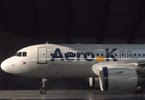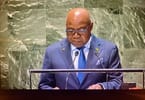Qantas has called off the dramatic grounding of its entire fleet after a tribunal ordered the Australian airline and trade unions to end a dispute that has stranded thousands of passengers.
Fair Work Australia, an independent arbiter, ordered the cessation of rolling industrial action in a ruling that forces Qantas and three unions to return to the negotiating table. It also ended one of the most extraordinary acts of industrial brinkmanship of recent times, which had seen the world’s second oldest airline ground its entire fleet on Saturday in apparent exasperation at union behaviour, catching the Australian government and passengers by surprise.
Alan Joyce, Qantas chief executive, said the airline aimed to have some planes back in the air by Monday afternoon. “We will be getting our aircraft back up in the air as soon as we possibly can. It could be as early as Monday afternoon on a limited schedule with the approval of the regulator. I apologise to all Qantas passengers that have been impacted by the industrial action by unions over the past few months and, in particular, the past few days.”
Qantas said 68,000 passengers had been affected by the grounding of its fleet and cancellation of nearly 500 flights, while keeping its planes on the ground has cost the airline A$20m (£13m) a day. However, economists, politicians and tourism chiefs fear that the cost to the Australian economy could have been 10 times as much. There was tangible relief that the furore had not dragged beyond the weekend. The Australian government, which appointed the tribunal, after Qantas grounded planes on Saturday, welcomed the move. Bill Shorten, the assistant treasurer, said: “We are pleased that after 24 hours of turmoil, commonsense has been restored.”
The Qantas dispute is taking place against a backdrop of industrial tension across an airline industry that is struggling to cope with higher fuel costs and the rise of Asian and middle eastern carriers operating out of booming markets with lower cost bases. Qantas in particular has been affected by competition with the likes of Emirates and Singapore Airlines, prompting the airline to announce a restructuring in August with the loss of 1,000 jobs and moving some operations to Asia. Industrial action ensued and had been going for weeks when Joyce unexpectedly pulled the plug on operations.
Experts warned that Qantas is not alone in facing challenges that will need tough responses, with inevitable consequences for trade union relations. Air France cancelled one in five flights on Sunday after cabin crew stopped work for a second consecutive day to protest against employment conditions, while Iberia – the merger partner of British Airways – has received stern warnings from unions over its plan to launch a low-cost carrier. BA is viewed by many aviation executives as the standard bearer, having endured 22 days of strike action last year over a drive to cut cabin crew costs in what it said at the time was a “fight for survival” for the then-loss making carrier.
Chris Tarry, an industry consultant, said airlines operating in oversubscribed markets, such as the US and Europe, had to cut costs. The entire industry operates on a collective profit margin of just over 1%. “Business as usual is not an option for any airline,” said Tarry.
John Strickland, a consultant and former BA manager, said: “There are still legacy carriers that need to be dragged kicking and screaming into the 21st century. If fuel prices are going to remain high and airlines are to maintain long-term profitability, then they have to change.”
One of Britain’s most influential industrial relations lawyers, Marc Meryon of Eversheds, said: “In any sector where cost pressures demand greater flexibility to remain competitive, employers will encounter resistance if they try to implement flexibility without union consent.”
WHAT TO TAKE AWAY FROM THIS ARTICLE:
- BA is viewed by many aviation executives as the standard bearer, having endured 22 days of strike action last year over a drive to cut cabin crew costs in what it said at the time was a “fight for survival”.
- Qantas in particular has been affected by competition with the likes of Emirates and Singapore Airlines, prompting the airline to announce a restructuring in August with the loss of 1,000 jobs and moving some operations to Asia.
- The Qantas dispute is taking place against a backdrop of industrial tension across an airline industry that is struggling to cope with higher fuel costs and the rise of Asian and middle eastern carriers operating out of booming markets with lower cost bases.






















